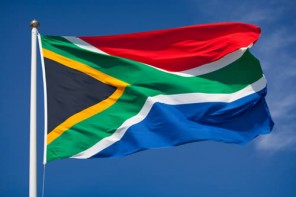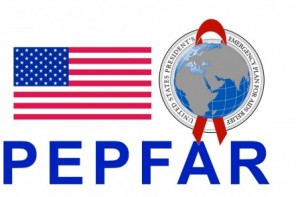How do you know if the truth is truly true?
Yeah, you read that right. But first, a background note or two:
Rhonda Shearer, who runs the watchdog group I referred to in my earlier post, brings up some good points in her comment. First: my own error. Shearer didn’t send 40 anthropologists to New Guinea (which is good, because I was about to hit her up for some funding). She and her organization sent some and then talked with others.
Second, apparently Forbes is wrong. Forbes said the guy in the lawsuit told Shearer’s group, at some point, that the information the New Yorker printed is true. Shearer says Forbes has this wrong and “is fixing it.” She also says “all interviews were conducted in English.”
I’m not sure what the language of the interviews has to do with it? Rhonda, maybe you can clarify? Is the idea that he didn’t know what his words had been translated into, and never translated back, or…? (And while we’re at it: seriously, the New Yorker is renowned for its fact-checking department. They must have done some fact-checking. Any idea what it was, and why it wasn’t (in your estimation) up to snuff?)
Third, Shearer says, “Bottom line–New Yorker went to press accusing indigenous people –who they named –of crimes they did not commit–rape, murder, theft–without even attempting to contact them to give them an opportunity to respond before publication. Diamond or The New Yorker had no idea if the people they mentioned were real people or if the charges of criminality were real…this is just plain wrong.”
Now this is the part that gets me fired up. Not in the “I have it in for/I will defend to the death the New Yorker” kind of way. I’m not really all that worked up about the lawsuit, but I do get worked up about the bigger issues Shearer raises: What is the responsibility of a journalist who gathers information in a culture and a language he doesn’t understand, and then uses it elsewhere?
In the Age Before the Internet (you know, BC), foreign correspondents interviewed people who never saw the final product. Today, that possibility (or perhaps, luxury?) has disappeared. My own work from Africa reminds me of this all the time: when I did a piece on a Sierra Leonean fashion designer, the online comments section was filled with congratulations to her from people who knew her. Which means they also would’ve known if I was wrong, bullshitting, or otherwise falling down on the job.
At the same time, journalists have a job to do: they have to take information, connect it to other information gathered from other sources, and put that in a context that reveals something important. That can get us into trouble. But not trouble we’re not used to. Years ago, at a journalism conference, I heard one award-bedazzled reporter say that she always tells profile subjects, “We will do this together, but the final product will not be your story. It will be my version of your story.” That seems wise.
The relative questions of interpretive lenses are clearly not the point of Shearer’s group’s suit; they allege basic errors of (big) facts. But the questions the allegations raise are bigger than a lawsuit. When Kuwimb–the lawyer-friend in my earlier post–says that the stories the New Yorker reprinted “stories were not serious narrative,” there’s a bigger point here: that truth is absolute, even if its expression is culturally relative.
That’s a point worth remember for all of us who work abroad. Our responsibility is not simply to get the story, but to get enough of the culture to understand whether the pieces of the story we have in our notebooks hold up. Which is, as anyone who’s tried to do it before will tell you, no small or easy task.
I’d love to hear from those of you who have worked abroad–as journalists or in other professions–how you handle this dilemma, parsing whether something someone told you is “truly true.”
ADDENDUM: I haven’t read Shearer’s group’s report, but you can find it here. Among the issues she tells me it raises is that subjects’ real names were used in the articles, which might be dangerous for them. This is, of course, the constant dilemma for journalists working in foreign countries…I won’t wade into it, since I’m totally uninformed on Papua New Guinea and the lawsuit beyond what I’ve just shared, but the safety of our subjects, while ever-present in most foreign correspondents’ minds, is certainly worthy of repeated reminders.



Check this out – –
http://culturematters.wordpress.com/2009/04/23/making-ethics-ethnography-friendly/
Sorry it took me awhile to respond. We had 3 local researchers go into the Southern Highlands. No one was sent from from the USA. The translation remark I made was regrading the first iteration of the Forbes article where they attributed something about Wemp’s to the translation from pidgin–but I pointed out that all interviews with Wemp were in English.
Re the fact checking dept. as I said in my article: “Pamela Maffei McCarthy, The New Yorker deputy editor, wrote in an August 15, 2008 letter : ‘When our first choice of source is not available, we must rely on the next, and in this case we consulted a large number of experts in the various fields the material touches on.’ ”
In other words, they did not talk to Wemp (they claimed they tried –but that is bogus. He was easily found) and they only asked experts about general things and not the specific facts about the war, as one of the anthropologists they did call told us.
From our article: “One of those experts was Alex Golub, assistant professor at University of Hawaii at Manoa, an anthropologist and expert on PNG who writes for Savageminds.org. Golub said that, indeed, a fact-checker spoke to him for ‘about 15 minutes’ and only asked general questions. He said, ‘They asked me some general questions about what is PNG like and what is tribal fighting like and this kind of stuff, it didn’t have anything to do with the actual case [or] details of the actual case.’ ”
Golub continued: “No one asked me anything about whether the guy was in a wheelchair or any dates or anything like that. It sounds like from what you’re saying that they never really bothered to do that at all at any level.”
Maybe they had stars in their eyes. They believed (to their likely present regret) that did not have to second guess a god-like-reputation scholar .
What mako Kuwimb meant was no that truth was relative but that the context for truth telling is. One speaks differently and with less precession when at a bar than when being interviewed for a national magazine or in court for sworn testimony–hence why scorn statements have great meaning .
Sorry for the typos –I am going on few hours sleep for days…
I will try again:
What Mako Kuwimb meant was not that truth was relative, but that the context for truth telling is. One speaks differently and with less precision when at a bar than when being interviewed for a national magazine or more rigorous , for court and a sworn testimony. This is why scorn statements have great meaning .